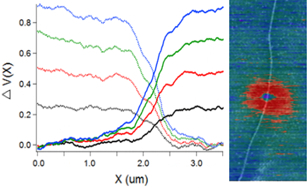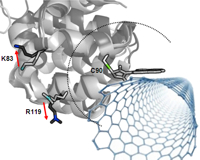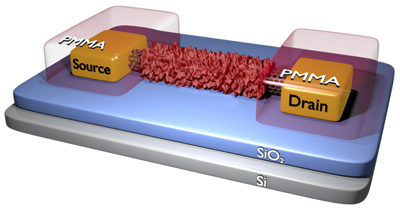|
|||||||||||
|
Research in the Collins group is focused
on the interdependence of surface chemistry and electronic transport. This rich, interdisciplinary
field has traditionally been studied using ultrathin, two-dimensional films, but the advent of
one-dimensional nanomaterials provides new research opportunities. One-dimensional conductors
amplify the interplay between chemistry and transport, to the point that single adducts or defects
can produce measurable electrical effects. Furthermore, one-dimensional devices are closely
aligned with next-generation devices in the semiconductor industry's
roadmap. While many types of conductive nanowires are experimentally available, most of our work is accomplished using individual, isolated single-walled carbon nanotubes (SWNTs). Pristine SWNTs are quasi-one-dimensional conductors with long mean free paths at room temperature. Because the entire transport current in a SWNT is confined to the surface interface with its environment, SWNT devices provide an ideal test platform for investigating electronic consequences of point defects and other chemical modifications. Our research investigates conductance, transconductance, noise, and contact and substrate effects. Individual SWNTs are typically interrogated before, during, and after modifications that include covalent addition, noncovalent adsorption, coating or electrodeposition, electrochemical doping, or thermal processing. The research combines traditional semiconductor characterization with optical and scanning probe techniques. The links below and to the right lead to more specific descriptions of current research projects.
|
|||||||||||

Creating Point Defects
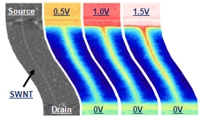
Scanning Probe Techniques
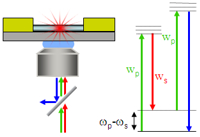
Nonlinear Optics
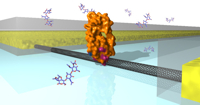
Single Molecule
Enzymology
